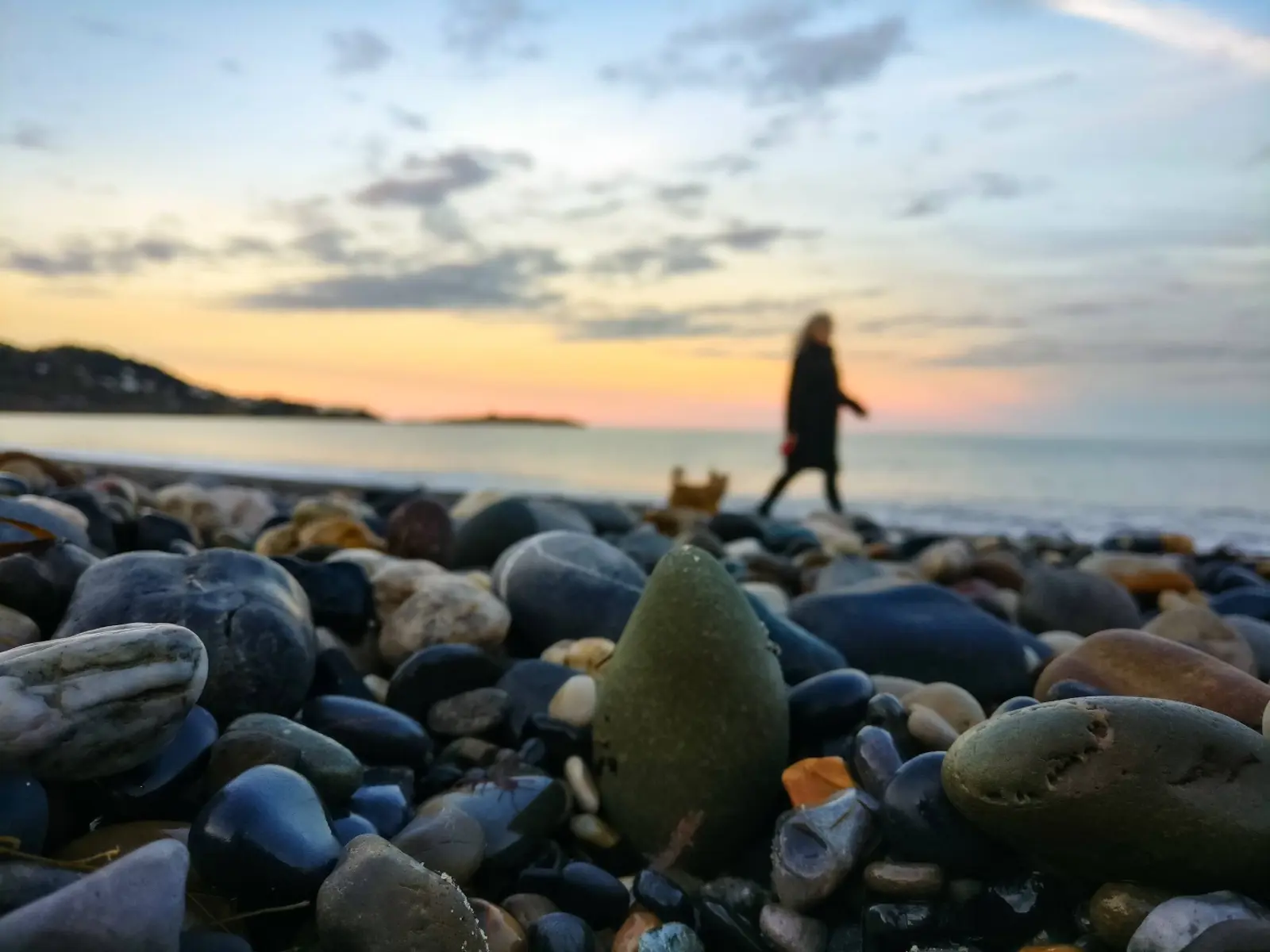Living in Dublin is special because it's a friendly place with lots of interesting history. People here are funny and smart, which makes it a nice place to learn English.
Dublin is the largest city and the capital of Ireland. You will love exploring it. It is a warm and welcoming city with friendly locals and is a popular destination for international students who come here to pursue higher education or to learn English. At English Path, we understand that moving to a new country can be a big change, especially when you're still learning English. But don't worry; we're here to help you every step of the way! This blog is a must-read for all English learners in Dublin. So, grab a nice cup of Irish tea, sit back, and let's get started!
What is Dublin like for English learners?
Dublin is famous for its 'craic' (pronounced “crack”) — a mix of great humour, intelligence, and witty chat that is often linked with the Irish people. For centuries, Dublin has attracted many writers, intellectuals, and visitors from all over the world. They found a cosy place to call home and so will you.
1. Accommodation for English learners in Dún Laoghaire
If you're moving to Dublin to learn English, you will need a comfortable place to stay. At English Path, we offer great homestay options for our students which include full-board, half-board, and self-catering in Dún Laoghaire. Our main goal is to make you feel comfortable and at home near campus so that you can focus on learning English and reaching your language goals.
2. Language classes for English learners in Dublin
English is the most spoken and primary language of communication in Ireland. So, to help you improve your English skills, English Path offers a wide range of courses for all levels, from beginner to advanced classes, that'll help you to improve your English. Our experienced teachers, interactive classes, and group activities will make learning English a fun and rewarding experience.
3. Getting around in Dublin
Dublin is a great city to explore on foot, but if you need to go on longer journeys, Dublin has an excellent public transportation system, including buses, trams, and trains. You can take the Luas tram, the DART train, or the famous double-decker buses. If you want to save money, get a Leap Card. The card gives students discounts on fares. To plan your route, use Google Maps or the Transport for Ireland app. If you are unsure about the route, you can always ask someone for help along the way. Dubliners are friendly and happy to chat with you.
4. Cultural sites English learners in Dublin can visit
Make the most of your time in Dublin by exploring the city's rich culture. You can visit some of the famous and historical landmarks like Trinity College, Dublin Castle, and the National Museum of Ireland. You can also go to some well-known spots like People's Park, Dún Laoghaire Harbour, the National Maritime Museum of Ireland, or the Oratory Dún Laoghaire near our English Path campus in Dún Laoghaire. You can explore these places on your own or take a guided tour to learn more about Dublin's history and culture. Remember to practise your English language skills by reading signs and talking to locals or other students.
5. Entertainment activities for English learners in Dublin
There are plenty of entertainment activities for English learners in Dublin to do here. Dublin has a lot of pubs, live music venues, and theatres where you can enjoy yourself. You can hear traditional Irish music, try different local dishes at restaurants, and explore the city. You can watch funny shows at the Laughter Lounge, visit the historical treasures of Trinity College Library, or enjoy the live music at a pub. If you love nature, you can go to Phoenix Park or St. Stephen's Green for a picnic.
6. Food options for English learners in Dublin
When it comes to food, Dublin has a lot to offer! You can start your day with a warm pastry and a nice coffee, and for lunch, there are plenty of options available at various restaurants. For dinner, you can choose from fresh seafood or a juicy burger. If it's sunny outside, don't forget to try Dublin’s famous ice creams! Ordering food is a great way to practise your English skills and learn new words related to food and cooking. So don't be afraid to order something new and expand your vocabulary!
7. How can English learners in Dublin make friends
Moving to a new city can be hard and you might feel lonely at times. But don't worry, making friends is a good way to overcome that feeling. You can start by becoming friends with other English learners in Dublin or even the locals! People in Dublin are really warm and welcoming, so you have a great chance to make new friends. Before you know it, you'll have a whole new group of friends to explore the city with.
Bonus tips!
English Path is here for you every step of the way. We can help you improve your English skills, make new friends, and explore the city like a pro. Here are a few additional tips to make your time in Dublin even more memorable.
- Download the Dublin Bus app for live bus departures and arrivals.
- Get a good rain jacket — remember, even sunny days can take a turn!
- Learn some Irish phrases like "dia dhuit!" (hello), slán (goodbye) or go raibh maith agat (thank you).
- Don't be afraid to ask for help — Dubliners are always happy to lend a hand.
- Most importantly, relax, have fun, and enjoy your Dublin adventure!
English learners in Dublin can have an amazing experience filled with many opportunities to improve their language skills and grow both personally and professionally. At English Path, we're committed to helping you on your language journey in Dublin. Whether you're a beginner or looking to improve your English skills, we are here to support you to reach your language goals.
Sláinte (cheers)!
Frequently asked questions (FAQs) about English learners in Dublin
Q1. What makes Dublin special for English learners?
Q2. How can I travel around Dublin?
If you're in Dublin and need to travel around or outside the city, you can use buses, trains, and trams. There's a special card called a Leap Card, which gives you a student discount on fares. You can also use apps like Google Maps to plan your journeys and find your way around the city.
Q3. What entertainment activities are available for English learners in Dublin?
In Dublin, you can go to pubs to enjoy traditional Irish music, attend live shows, visit theatres, or even enjoy nature in Dublin’s parks. These are good places to practise your English language skills while exploring the city.
Q4. What accommodation options are available for English learners in Dublin?
If you join English Path to learn English or improve your language skills, you will have different safe and comfortable homestay options to choose from, such as full-board, half-board, and self-catering. All of these options are designed to provide you with a home away from home so that you can focus on learning English without worrying about your living situation.
Q5. What cultural sites can I explore in Dublin?
If you want to learn about the history and culture of Dublin, there are many important places you can visit, like Trinity College, Dublin Castle, and the National Museum. You can also practise your English language skills by talking to the locals, asking questions, and learning about the culture of Ireland.


